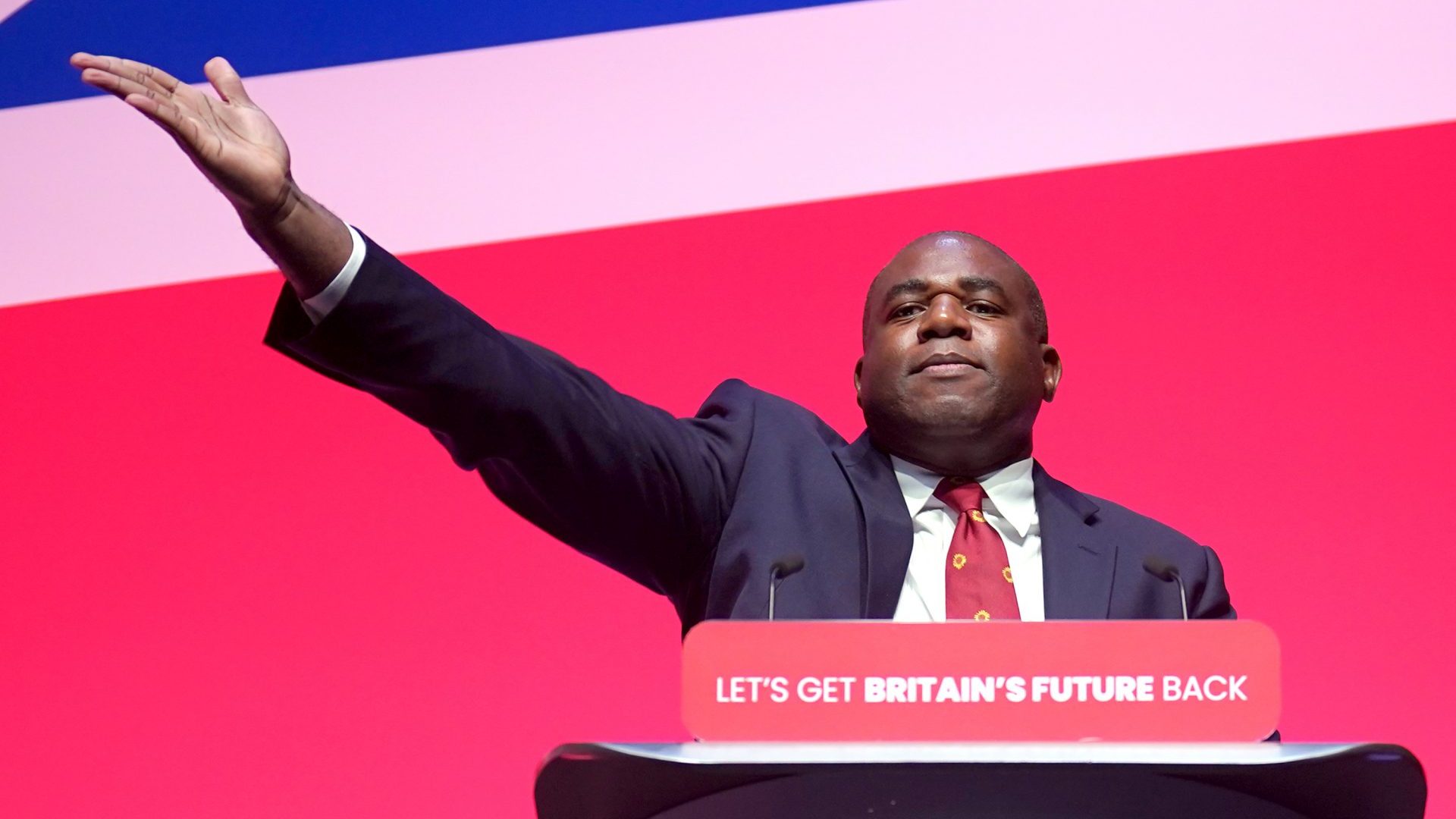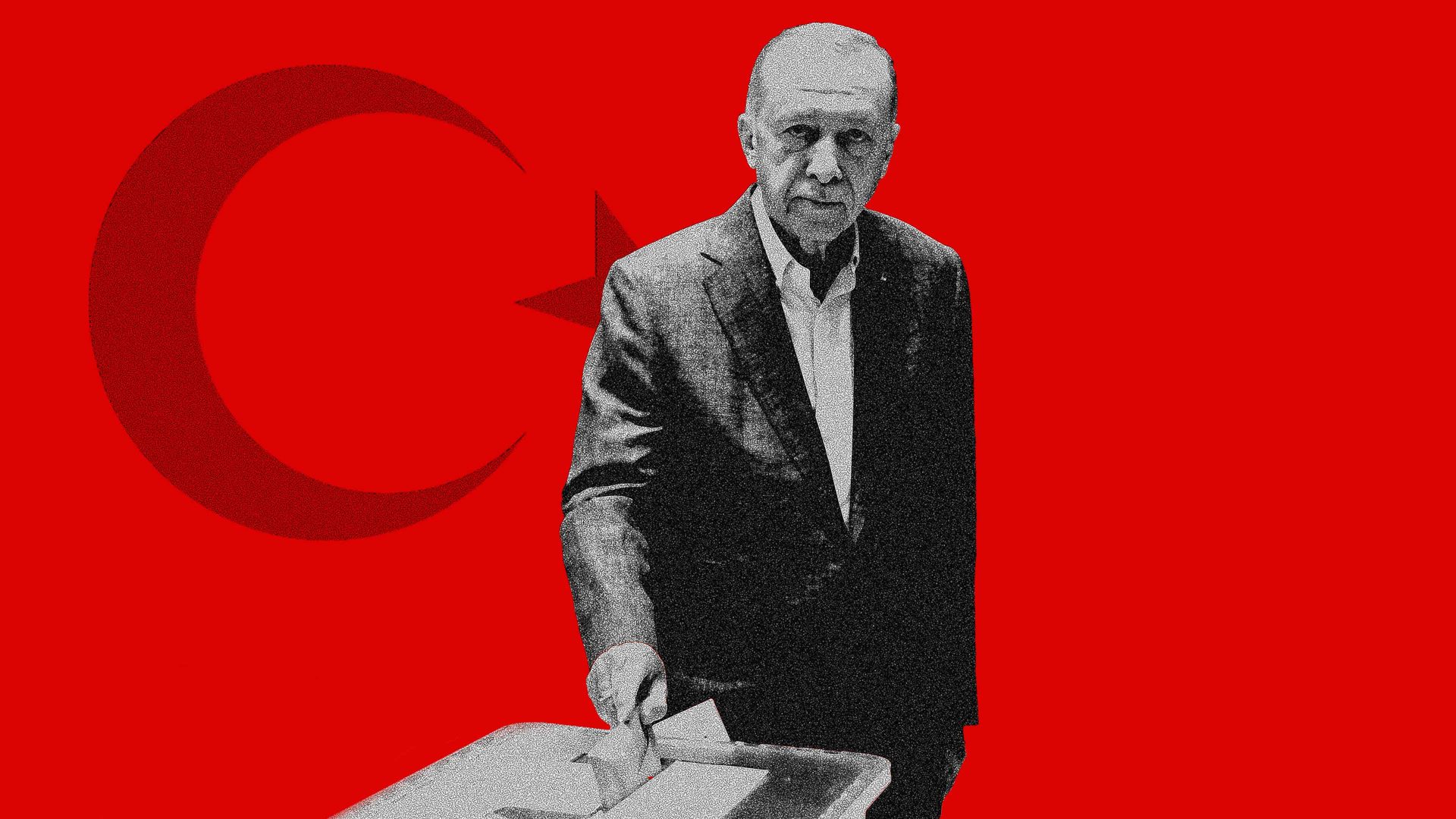“Upper Volta with rockets” was what Americans derisively called the Soviet Union in the 1960s. How might the UK be dismissed by global cynics now? “Fawlty Towers with Tridents” perhaps?
Britain has allowed itself to be characterised as a clownish middle-ranking nation marooned off the coast of Europe, clutching on to a handful of American-made missiles.
After the general election, has that changed? The answer: mostly, but not completely.
Within hours of the general election, the epithets specific to the era of Boris Johnson and his hapless Tory successors were wiped away. Britain is indubitably serious again. As Keir Starmer said on the steps of Downing Street on July 5: no more noisy performance.
Nor should the UK be seen any more as marooned. On his first full day as foreign secretary, David Lammy headed to Berlin to show the government’s eagerness to engage seriously with Europe. He continued that message with the astute decision to visit Poland and Sweden, to show solidarity with Ukraine and Nato.
Meanwhile, the new defence secretary, John Healey, was off to Ukraine to meet Volodymyr Zelensky, while a couple of days later Starmer flew to Washington for a Nato summit. Dozens of phone calls were made to world leaders and foreign ministers in between.
The message is clear: after a gap of a decade or so, Britain is keen to become a good global citizen again. Labour promises a different kind of engagement.
“What I have learned is about the importance of listening, not just preaching,” Lammy noted during his first Euro hop. “And to listen, you have to really hear, and I’m not sure we’ve been good at that over the last few years, and we’ve got to get back to it.”
To give James Cleverly and David Cameron their due, they tried. The problem was the atmosphere that pervaded the Conservative era. British over-claiming is nothing new. Rule Britannia has long been the template for diplomacy; the problem that successive governments failed to see was that the world had long since moved on. Under the Tories, this mismatch reached a level of absurdity.
Other countries saw Brexit, and the duplicity and pomposity that accompanied and followed it, as confirming what they already knew about a very British self-delusion.
As shadow foreign secretary, Lammy did a lot of listening. He made 56 trips in two years, a large proportion of which were to the Global South. He has acquired a better grasp than many about Britain’s real place in the world.
Hence the one part of the characterisation that still holds: Britain is a medium-sized state, albeit with two extra sources of clout that reflect the past rather than the present – its seat at the UN Security Council and its role as a nuclear power.
There is nothing ignominious or “declinist” about that. Most UK diplomats get it. But very few politicians come clean to the public about it.
Throughout the election campaign and since, Starmer has draped himself in the union flag. The language is still about “a great power” and “the special relationship” with the United States. The rhetoric provides the prop, the balm, for Britain, particularly after the calamity of Brexit – something Starmer is adamant he will not reverse in his lifetime.
This is one of the many trade-offs that Starmer is inviting voters, particularly Labour voters, to appreciate. As in domestic policy, pragmatism is the order of the day.
As Lammy pointed out, in his recent “Case for Progressive Realism” essay for Foreign Affairs that he wants to be seen as his seminal text, his task is to deal with the world as it is rather than as any of us would wish it to be.
“When… Tony Blair entered Downing Street 27 years ago, the British economy was larger than India’s and China’s combined. The United Kingdom still administered a major Asian city, Hong Kong, as a colony. The increase in global temperatures from the long-term average was less than half what it is today. And American dominance was so striking that some people saw the spread of the liberal democratic model as inevitable,” he writes. Now, he says, “The global order is messy and multipolar.”
His analysis of what went wrong is hard to contest: “Successive Conservative governments sank deeply into nostalgia and denial about the United Kingdom’s place in the world. The government, for example, crashed out of the European Union without a clear plan for what to do next. It treated with contempt the country’s global reputation for upholding the rule of law, threatening to imperil the Good Friday Agreement… and leave the European Convention on Human Rights.”
In an echo of Rachel Reeves’s references to the moribund state of the British economy, Lammy said of Britain’s global reputation: “Fixing this damage will not be easy.”
Having alienated so much of Europe, he is on the look-out for partners. Expect a new relationship with Germany, and with France, once it has alighted on a government. (A visit to Paris would have taken place immediately had it not coincided with the second round of elections there). And, crucially, with the EU itself.
In a paper issued two days after the UK general election, the German think tank SWP, which is close to the chancellor’s office, talked of a Common Strategic Initiative between Britain and the EU. This, it said, could consist of three elements: regular consultations between Starmer/Lammy and the president of the Commission (the re-elected Ursula von der Leyen), along with the recently chosen president of the European Council, António Costa, and the new foreign affairs high representative, Kaja Kallas. They could be joined by national leaders.
Second, working groups on several important areas would be established involving Brussels institutions, representatives of member states and the UK. Several areas have already been identified where collaboration would benefit both sides, such as the imposition of sanctions on rogue states, defence industry cooperation and climate change.
Third, Britain could be invited as a guest to various EU meetings. Lammy has already accepted an invitation to attend an October meeting of its Foreign Affairs Council.
Initial scoping work has begun on a set of principles that would underpin an EU-UK security pact. This is being interpreted more broadly than military cooperation (something that sits more naturally with Nato), and will invite closer coordination across economic, climate, health, cyber, and energy security issues.
A specific bilateral defence agreement with Germany is ready for signing, to accompany one agreed over a decade ago with France. In security terms, expect a new informal Quad to emerge involving the UK, France, Germany and Poland.
How much further will this new government move towards Europe? Some low-hanging fruit, on veterinary and other foodstuffs, on mutual recognition of professional qualifications, will be relatively unproblematic.
Will Starmer, despite his pre-election refusal, entertain some form of long stays for young people? Will Erasmus+ student exchanges be reintroduced?
Most of the heavy lifting will be done by Nick Thomas-Symonds, who had been developing close relations with counterparts in Brussels while in opposition and now has the intriguing title of Minister for the Constitution and European Relations.
Thomas-Symonds needs to find a way of repacking variants of freedom of movement in a way that cannot be seen as reneging on Brexit promises. If good relations with Europe can be normalised in the minds of most British voters, if voters’ lived experience can be improved (such as cutting queues at borders) then potentially much can be achieved.
But Starmer will be ultra-cautious. He will stress test each act of rapprochement in terms of domestic and international reaction.
The political crisis afflicting the US will accelerate the pace and the scope of cooperation between the UK and EU. If Donald Trump becomes president, Europe will have to deal with him, but is already on notice that it will have to do more in terms of overall defence spending and defending Ukraine.
If the Democrats secure what now seems an increasingly unlikely victory, the atmospherics would be far better, but the fundamentals would remain the same. Washington is demanding greater European self-reliance.
Britain has for some time ensured its defence spending has been at 2% of GDP, the target demanded by the US. It is currently around 2.3%. With finances so tight, can the government realistically increase it to 2.5%, as it says it eventually will? Healey has called for a defence review – that’s what new incumbents do.
He and Lammy have already spoken of the government’s “ironclad” commitment to defending Ukraine. The specifics are more complex. Will the UK agree for its ammunition to be used inside Russian territory?
Last year’s Whitehall “refresh” to the 2021 Integrated Review contained some surprisingly interesting insights, despite the general tenor of the Conservative government, such as this: “Systemic competition is developing into a highly complex phenomenon that we must navigate with an understanding that not everyone’s values or interests consistently align with our own. Today’s international system cannot simply be reduced to ‘democracy versus autocracy’, or divided into binary, cold war-style blocs.”
China poses by far the most important dilemma. Europe managed to divest itself from energy dependency on the kleptocracy that is Russia. De-coupling from Beijing has proven an impossible task. Western economies are too interlinked with the Chinese one, and cooperation is required on transnational issues such as climate and public health. An early visit there from Lammy will provide a fascinating test of his “progressive realism”.
Dealing with China will give the new government the chance to prove its credentials with Asia as a reliable partner. The UK is already part of the defence alliance Aukus (with the US and Australia) in the Indo-Pacific. It is looking to boost its security ties with Japan and South Korea.
India is a more fraught relationship. Among one of the more spectacular failings of the supposed “Brexit dividend”, the UK has still to deliver a long-promised trade deal with a country that is projected to be the world’s third-largest economy by 2030.
By far the most politically sensitive area of foreign policy is Israel and Gaza. Starmer defined his leadership against Jeremy Corbyn’s perceived failure to deal with antisemitism within Labour’s ranks. But Starmer’s initial refusal to back calls for a ceasefire demonstrated a lack of sure-footedness.
The consequences have not dissipated. Despite the election landslide, a handful of Labour candidates were defeated by pro-Palestinian independent candidates. Starmer’s personal vote in his own constituency suffered a significant dent.
Within days of taking office, Starmer pledged to support a Palestinian state, but without setting a timeframe. Labour is sticking to the mantra of a two-state solution, even though the prospects of that are negligible. With almost no clout in this area, but with much potential for domestic discord, there are no upsides to dealing with the issue.
And that, more broadly, is the nature of foreign policy. Starmer and Lammy can prepare themselves as much as they like for the known unknowns, but they cannot plan completely for the turbulence ahead. Ultimately it was foreign policy, or rather one specific area of it, a naive and hubristic decision to back George W Bush’s misadventure in Iraq, that did for Blair’s reputation.
The Britain of 2024 is altogether different from that of two decades ago. Such is the state of the armed forces, Britain couldn’t be part of a major military operation even if it wanted to.
Whatever attempts are made at flag waving, it is a much-diminished power. Yet if Starmer and Lammy can prove their credentials as good partners, the country’s influence will increase again.
The words of welcome from around the world have been sincere. Most governments simply want the UK to be trustworthy again.




